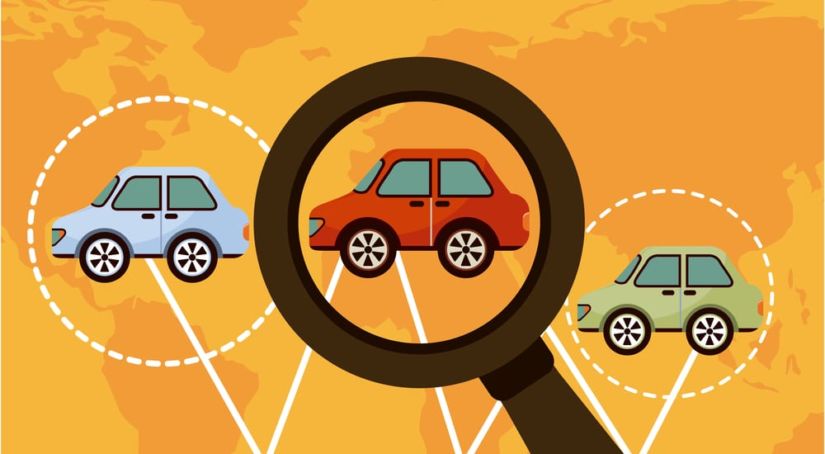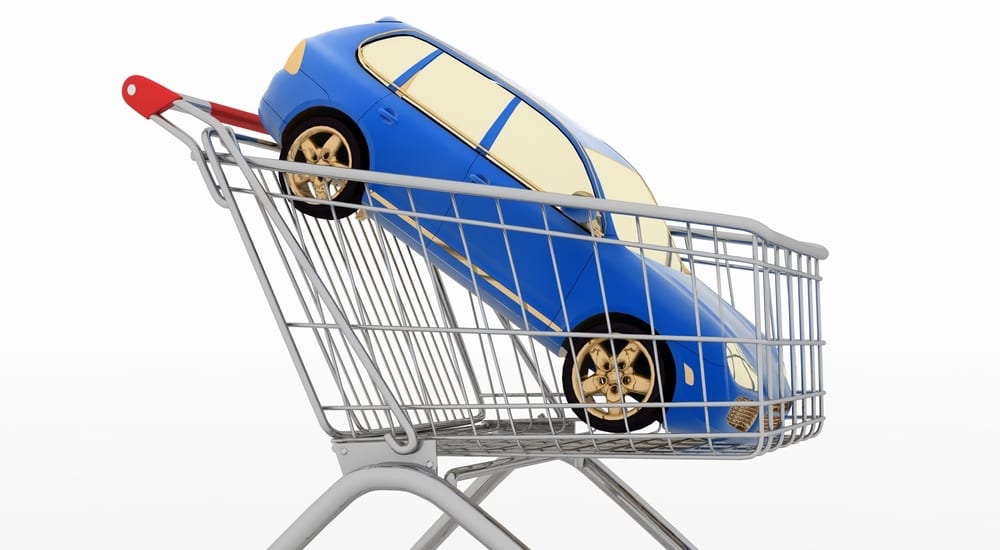Let’s face it, everyone starts at the beginning when it comes to buying a car. You probably have no credit, car loans are a complete mystery, and you’re slightly overwhelmed. Unless your parents literally own a car dealership, you’ve probably only been in one once or twice during your entire life, and that’s if you’re lucky! If you’re a recent college grad or just striking off on your own for the first time, you probably need a car just to be eligible to get a job. That means doing some research on the process and preparing yourself for what likely is your first “big” purchase (not counting your student loans!)
As a first-time car buyer, you probably have some questions and might be making some assumptions about the car buying process. I want to help you clear up some confusion before you embark on your next big step of your life. I’ve been there, and I can relate. Check out these 5 things you need to know if you’re a first-time car buyer, especially if you have no credit for a car loan!
Don’t Lease, It’s a Trap!
On first glance, leasing seems the obvious choice for a new car buyer. On paper, the monthly fees are lower than what they might be if you were to buy a car outright. You don’t technically own the car, which means the dealer is responsible for faulty parts or anything that goes wrong which isn’t your fault. It also means that you can look forward to getting into a new car when your lease is up. On the surface, this all looks great. But as a first-time car buyer, leasing probably isn’t for you! Here’s why:
- You still have to pay for routine maintenance
- You can only drive a limited number of miles
- If you so much as dent the bumper you could be charged a hefty fee
- You own no asset at the end of the lease (say sayonara to your cash)
Leasing a car is kind of like renting. You can’t put holes in the walls to hang up your pictures and all your rental money lines your landlord’s pockets. To continue the metaphor, this is an apartment where you still have to pay for utilities. Wouldn’t it be better to “be your own boss”? If you’re going to pay for the maintenance on your car, wouldn’t it be better if those repairs and upkeep costs contributed to the overall value of your end asset? Once you’ve paid off the loan, you retain the physical car. That means you can resell it or trade it into a dealer for something better later on! You also aren’t limited to a certain number of miles. What happens if you get offered your dream job but it’s a 40-minute commute from where you live? Tough – or you’re going to have to pay exorbitant fees at the end of your lease for going over the mileage.
Leasing can make sense for some people, especially those who can write it off as a business expense or want to always be driving the newest model of their favorite car (and can afford to.) If you’re a first-time car buyer, I doubt that’s you yet. Basically, it’s a better bet to get yourself a car that doesn’t have a lease attached to it so that you can retain your asset and have flexibility with your life.
Buy Used
So, now that I’ve convinced you not to get a lease, I’m going to try to convince you that you should get yourself a used car instead of a new one. Yes, a new car smells nice and makes a great profile picture on your social profiles, but is the extra cost really worth it? When you drive a new car off the lot, it will immediately lose 11% of its cash value! Talk about depreciation! That means that even if you buy a used car from only a year or two ago, you’ll be saving a load of cash.
Second, a used car is way less likely to be a lemon. That means that it probably doesn’t have so many manufacturing defects that it’s undrivable. If it has some miles on it, you know that it’s been working.
The third reason you should buy used – you don’t only need to worry about paying the monthly loan amount. You need to calculate how much your town’s annual registration fees are and what your auto-insurance premium will be. If you opt for a used car instead of a new one, both of these will be significantly lower. (You also won’t feel as bad if you back up into a pole once or twice).
You Can Get Financing with No Credit
If you’re a first-time car buyer, there’s a strong possibility that you have absolutely zero credit. Nilch. Nada. You might think your student loans should be building your credit, but you’d be wrong. Just because they’ve been accruing interest doesn’t mean they’re building your credit. They don’t start doing that until you’ve been paying them off steadily for a while.
So, you can’t possibly get a loan, right? Wrong. Instead of scrounging around for cash to buy a beat-up old rust-bucket, look for sellers who have No Credit Car Loans. These loans help out people who otherwise wouldn’t be able to afford a car. They know that owning a car in American is a must (unless you live right in the heart of a city, I guess) and need that car to start earning money. Otherwise, it would be a catch-22 where you can’t make money to earn credit because you don’t own a car. But you don’t own a car because you don’t have any credit.
Some No Credit Car Loans will even let you make a minimal down payment on the car, which can be enormously helpful for someone just starting out.
Never Compromise on Quality
I’ve hopefully shown you that leasing is bad for first-time buyers and that you should buy a used car. Now, let’s take a look at quality. If you’ve never made a purchase like a car before, the amount of money you’re about to drop is a little intimidating. That being said, you should be willing to fork over the extra $1,000 to get a slightly more reliable version of the car you want. Weigh the pros and cons of a slightly higher monthly payment over the possibility that something will go wrong. If the transmission goes, you’re going to find yourself in a difficult situation and wishing you’d gotten a car that costs you an extra $20 a month. Do your research on reliability ratings and don’t be afraid to ask friends, family, and your dealership for advice.
It’s Okay to Walk Away
This is an important lesson I think more of us need to learn. If you’ve walked into a dealership or are in the process of buying from a private seller or from an authorized website, know that you have the power. If you’re feeling pressured by a stereotypical salesman at your local dealership, walk away. If the price doesn’t seem fair, walk away. If they seem to be withholding information, walk away. You should be able to feel confident in your decision. If they won’t offer over the CarFAX report when you ask for one (a vehicle history report showing stats about the car), take it as a red flag and run. If they are trying to get you to buy something out of your price range, get up and go. The place you buy your car from should be forthcoming, helpful, and work with you to find the exact make and model car that fits your needs. Don’t be afraid to ask for exactly what you want, this is, after all, an important decision.




